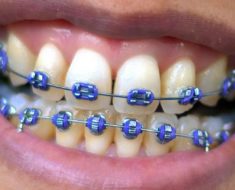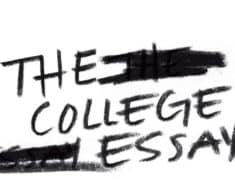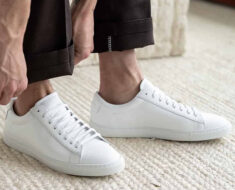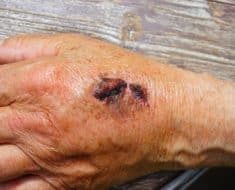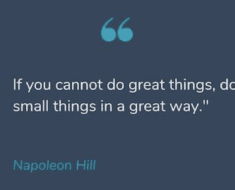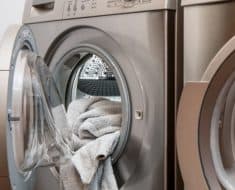
Some people are brighter than others; scientists think that intelligence is the consequence of a complicated mix of variables ranging from our genetics to the circumstances in which we grow up.
But that doesn’t imply that somebody can’t appear to be smarter than they are.
In truth, there are several scientifically supported methods for convincing others that you are a modern-day Einstein the moment you meet them.
If you doubt yourself, take an ‘am i stupid quiz’ online or analyze yourself. If you’re not smart as someone or others, here are a few of them to help you wow your boss and friends with your seeming intelligence.
Walk at the Same Speed as Everybody Else
According to research done by Boston University marketing professor Carey Morewedge, people may believe you’re foolish if you walk faster or slower than the others around you.
For the study, 49 undergraduates viewed videos of three distinct persons walking at three different speeds: slower-than-average, average, and faster-than-average. They then indicated how competent and clever that individual looked.
When people walked at the same speed as everyone else, they were seen as wiser and more capable.
Put on Thick Glasses
According to studies, wearing glasses makes you look less handsome but more intellectual.
In one small study, researchers at the University of Vienna asked 76 people to score 78 photographs of faces — some without glasses, some with full-rim glasses, and others without rimless spectacles — on a variety of attributes such as intellect and beauty.
People wearing glasses — rimless or with rims — were judged as more clever than those who did not wear glasses, according to the study’s results. Those who did not wear glasses were thought to be more beautiful than those who wore full-rimmed spectacles.
Don’t Hold Beer
When people have had too many drinks, they frequently do stupid things.
It’s no surprise that holding a drink can make you appear less intellectual, according to research conducted by the Universities of Michigan and Pennsylvania.
In one of the five tests, 300 managers were shown images and read transcripts from a fictitious dinner discussion. According to the findings, managers regarded applicants who requested wine instead of soda as much less clever and less hirable.
Write Simply
Showing off your vocabulary has always been a go-to strategy for seeming intelligent.
However, being overly verbose might backfire. According to a 2012 Princeton research, using large words carelessly makes others think you’re less clever.
In one of several studies, researchers chose a sociology dissertation abstract with a lot of long words and developed a “simplified” version by substituting every word with nine or more letters with the second smallest item in the Microsoft Word 2000 thesaurus.
The authors then invited 35 Stanford undergrads to read the dissertation and score the author’s IQ as well as the difficulty of the writing. According to the findings, the streamlined version was seen as less complicated – and its creator as more clever.
Use Graphs
Aner Tal and Brian Wansink of Cornell University discovered in 2014 that people are more inclined to trust a claim if it “looks and smells” scientific, such as if it’s accompanied with a graph.
In one of the study’s experiments, two groups of roughly 30 volunteers each received information on a new drug developed to combat the common cold. One group was shown a bar graph to illustrate certain experimental findings, whereas the other did not.
The results revealed that 68 percent of those who did not see the graph believed the drug would lessen disease, whereas 97 percent of those who did saw the graph believed the prescription would do the same.
Look People in the Eye
According to a 2007 study performed by Loyola Marymount University professor Nora A. Murphy, staring in the eyes of your discussion partner might have a significant impact on your perceived smartness.
In one experiment, 182 college students were divided into pairs. One partner in each pair was told to attempt to appear intelligent and competent, while the other was told not to.
The researchers then videotaped the pairs discussing a predetermined topic for five minutes. Each partner assigned a perceived intellect rating to the other.
When a team of judges analyzed the videos, they discovered that the students who were advised to seem clever engaged in a variety of actions, but those who succeeded were the ones who stared in their partner’s eyes while speaking.
Act Confident
The same 2007 study, headed by Murphy, discovered that wearing a confident, rather than a solemn, look was a predictor of perceived high intellect.
According to another study, even overconfidence might make you appear more informed. In one study, participants rated their geography competence before working in pairs on a geography problem. They then judged each other based on how skilled they appeared.
Students who overestimated their talents were found to be more competent by their companions.
Dress Smartly
According to studies, the clothes we wear impact other people’s impressions of our abilities.
For example, students consider formal-dressed teaching aids as more intelligent — but less fascinating — than their casually dressed classmates.
Furthermore, a 2012 Northwestern study discovered that persons who wear white lab coats like scientists and physicians are known to do better on tasks demanding a high level of focus.
Remove Your Facial Jewelry
Piercing your face may demonstrate your bravery, but it will not help you when attempting to demonstrate your intelligence.
According to a 2012 study headed by Viren Swami, a professor at Anglia Ruskin University in the United Kingdom.
The researchers asked 440 people to judge the IQ and beauty of a man and a woman with varying quantities of facial piercings. According to the findings, people with piercings scored worse on both attributes, and those with several piercings received the greatest unfavorable scores.
Be Funny
A good sense of humor might be an indication of intelligence.
A psychologist invited three males to relate a joke to their buddies at a pub while a lady was sitting at a nearby table in one small research. The males were then told to approach the woman and ask for her phone number. Following the man’s departure, a researcher approached the lady and asked her to rank the man’s beauty and IQ.
The males who cracked jokes were viewed as more intellectual and handsome, according to the results. They were also three times more likely to obtain the woman’s phone number than those who did not make jokes.
Be a Leader
According to a 2002 study, those who are viewed as leaders are more likely to come off as extremely bright.
Around 350 undergraduates were informed they were managers at a fictitious computer business and were invited to a budget discussion with other students.
Students graded each group member’s intelligence at the end of the meeting. They also stated whether or not someone in the organization served as a leader.
The researchers also used a scientific method to assess the intellect of the kids.
It was shown that there was a high association between how clever pupils seemed and whether they were viewed as group leaders. However, there was only a minor association between leadership and real intellect, suggesting that leaders simply appear to be smarter than everyone else.
Even though many judgments are based on preconceptions, they endure. People may strive harder to produce the “correct” image so that they are regarded favorably because they are aware, consciously or unconsciously, that others make judgments of them after a glimpse or a brief chat. These impressions may be false, yet people respect other people’s perspectives.










